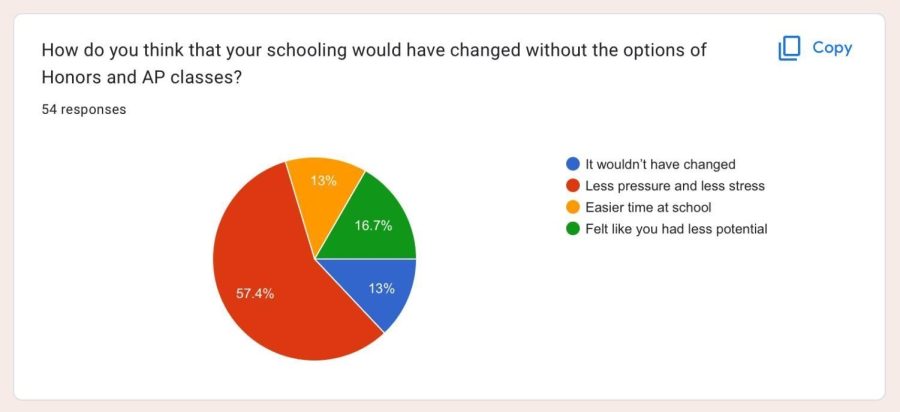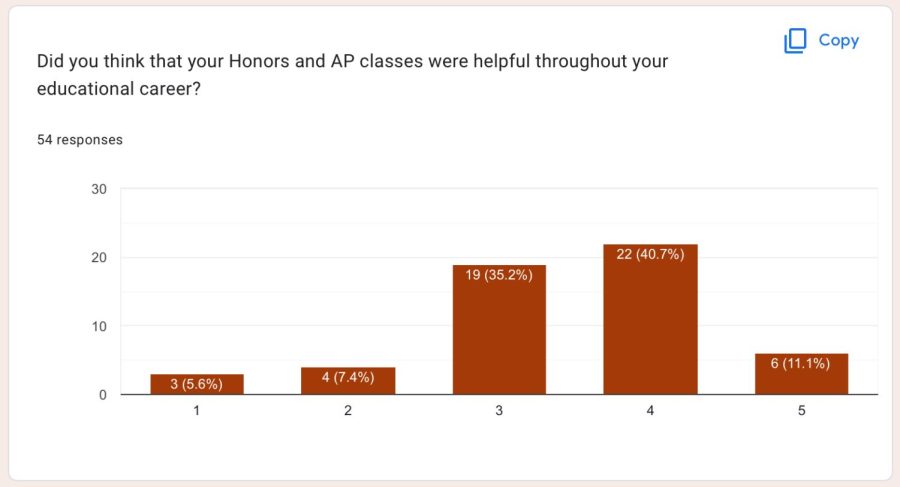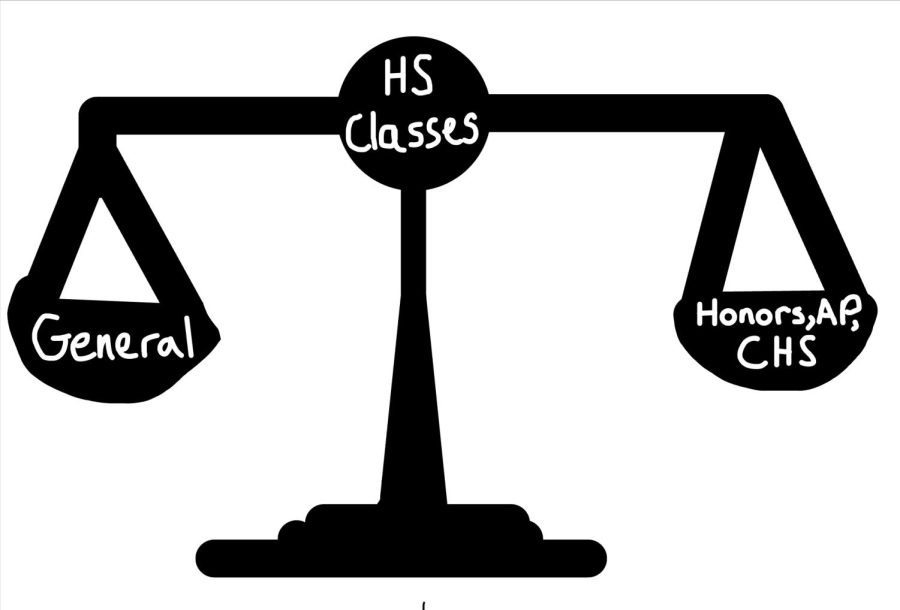Honors, AP, CHS, general classes, what’s best?
Extra homework, a faster learning pace, more studying, and harder tests are all parts of advanced classes, Honors and Advanced Placement (AP) classes to be specific.
At Norwin High School there are many advanced classes in which students can take an advanced version. Classes at Norwin High School range from general, Honors, CHS (College in High School), and AP (Advanced Placement). Honors classes for their difficulty come with a 5% grade boost and a 10% grade boost for AP classes. But these advanced classes can be very stressful and have a larger workload, so it really comes down to the extra work and stress being worth it or not worth it.
According to Healthline.com: “Researchers surveyed more than 4,300 students at 10 high-performing high schools in upper middle-class California communities. They also interviewed students about their views on homework. When it came to stress, more than 70 percent of students said they were ‘often or always stressed over schoolwork,’ with 56 percent listing homework as a primary stressor. Less than 1 percent of the students said homework was not a stressor.”
This statistic is similar at Norwin High School for students.

According to a recent poll conducted with Norwin High School students, 57 percent of students believe that without the option of AP and Honors classes they would have felt less pressure and less stress.
Consistently difficult large amounts of homework can have negative aspects too.
According to Healthline.com, ”In 2013, research conducted at Stanford University found that students in high-achieving communities who spend too much time on homework experience more stress, physical health problems, a lack of balance in their lives, and alienation from society.”
Although there is no certain cure for stress, there are techniques to help reduce stress.
And the main way to limit stress throughout high school, according to Verywellmind.com the best way to deal with stress in school is to “get enough sleep.”
Former Norwin High School student Thomas Carney Jr. who also partook in several advanced courses dealt with much stress throughout high school.
”Staying organized was pretty important,” said Norwin 2022 graduate Thomas Carney Jr. “I always made (and still make) to-do lists for the week to make sure I get everything done. Taking away distractions like the Xbox and such is also helpful to focus on what you need to do.”
Yet stress levels have not just been an occurrence at Norwin High School, rather this has been happening all over the nation.
According to a USNews.com article, ”High levels of stress, especially related to school, have been an issue for teens for years. In a 2013 NPR poll, 40% of parents said their high schooler was experiencing “a lot of stress” from school, while a 2019 Pew Research Center report identified academics as the leading source of pressure teens face.”
Although stress can become a result of many of these advanced classes, there are benefits beyond rooting from these advanced classes.
”Advanced placement classes can prepare you for the rigors of collegiate academics, provide you with college credits, boost your GPA, and help you hone your skills,” according to an article published on Weadmit.com entitled “How Advanced Placement Classes Affect Your College Options.”
Thomas Carney Jr. also found many previous advanced classes helpful throughout his college experience.
”From my experience, it depends on the class,” said Carney. “For example, my honors history classes did not actually do anything for me beyond boosting my GPA. On the contrary, my honors English classes served to be extremely useful for college. In taking these classes, I feel like I significantly strengthened my ability to read and comprehend material. This allowed me to be more successful in reading textbooks and improved my note-taking abilities. Taking three years of honors English classes also shaped me to become a strong writer. I finished my first semester with a 99.2% in college writing as a result. Finally, though they were not explicitly labeled honors or AP, my college-level Exercise Physiology, Anatomy and Physiology, and Physics in Medicine courses directly translated into college Anatomy and Physiology. I am the only student in my class entering finals week with a 100% in my class.”
Although there is the idea that advanced classes such as AP classes will only help your transcript going into college, that is not always true if a student performs poorly in their advanced class.
“College admissions officers are not impressed when a student takes numerous AP courses and does not earn passing grades in the course or on the AP exam,” says Shondra Carpenter, a counselor at Cherokee Trail High School in Colorado. “It shows that the student was trying to compete in a field they are not ready for and are simply trying to enhance their transcript with courses they think will impress a college,” (USNews.com).

Although a poor performance in advanced classes can harm someone’s chances of getting into a college this was not found to happen often as Norwin High School.
According to a result poll at Norwin High School 54 percent of over 50 students surveyed said that the work they put into an advanced class did in fact resemble their grade.
So overall, advanced classes can be beneficial, as they can boost one’s GPA, prepare them for college, or even possibly get them into college. Yet advanced classes can also lead to harm through a students mental health or well being or chances of getting into a college depending on how the student performed, and they can also be harmful to a students GPA depending on their performance. So really class type and choice all depends upon a students’ academic abilities and goals and what is best for them.

Noah is a Junior at Norwin High School and is an editor for the newspaper. This is his first year as a part of the staff. He also contributes to the to...







